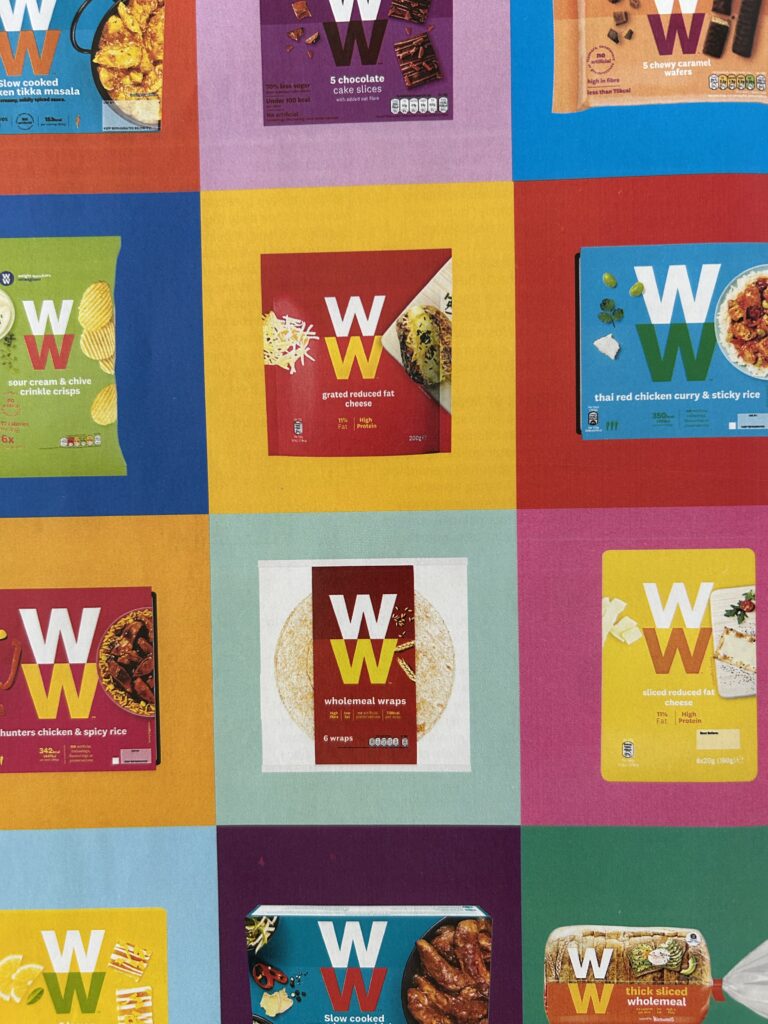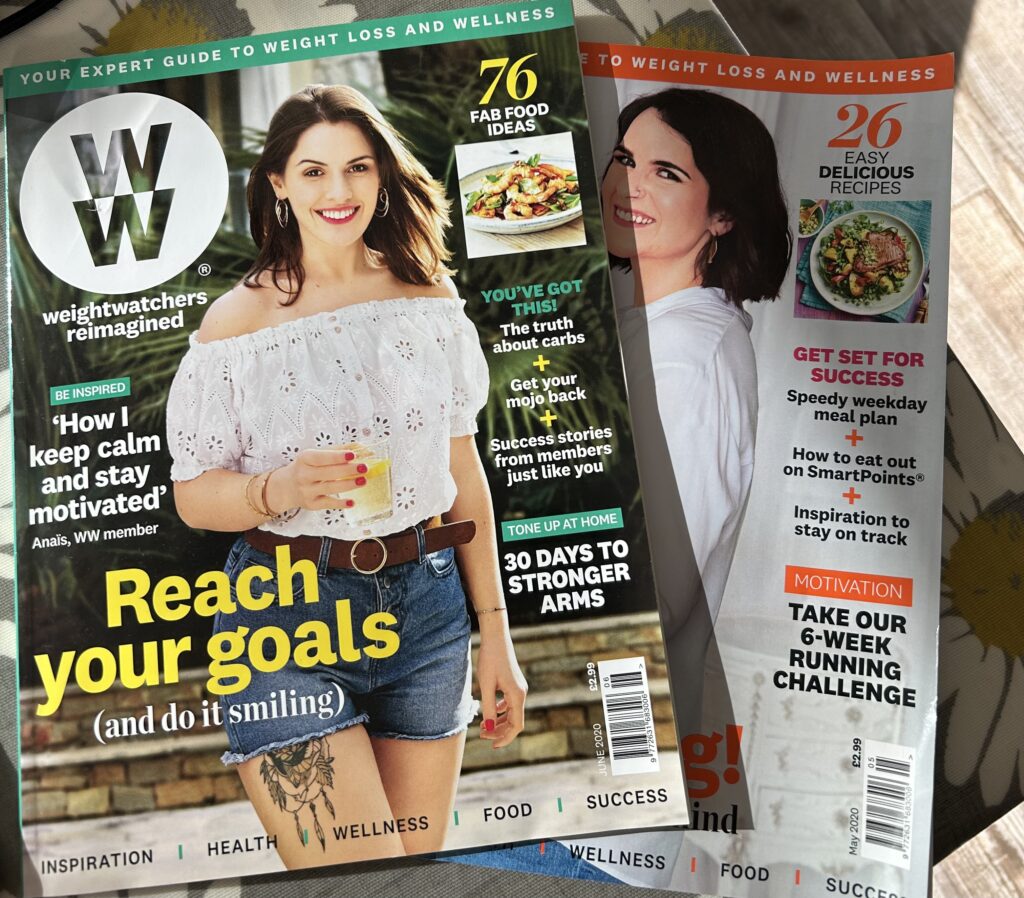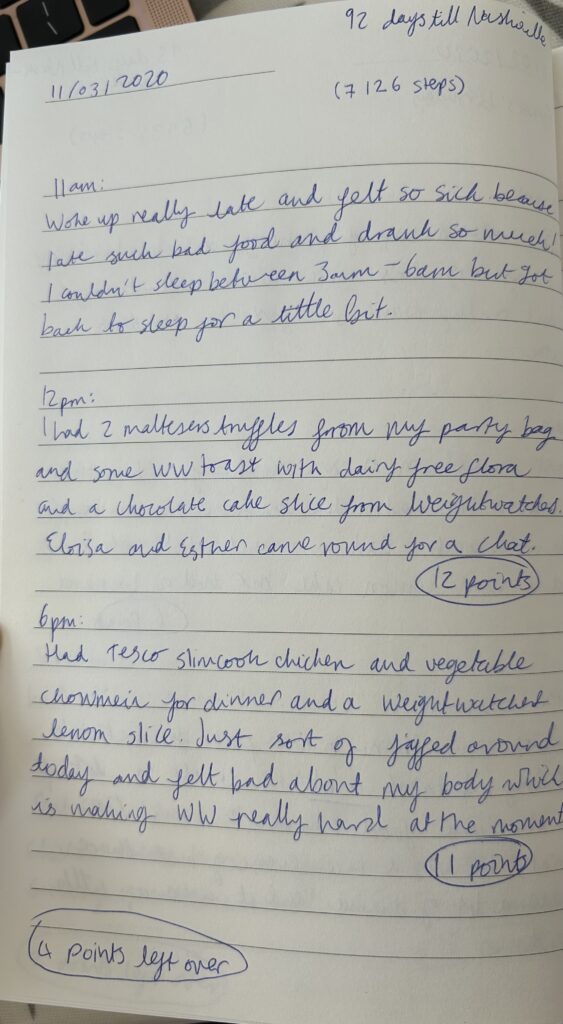TW: Eating disorders, diet culture and body image issues
As of May 7th, infamous diet company WeightWatchers announced that it had filed for bankruptcy as the rise of weight-loss injections like Ozempic and Mounjaro has completely negated the need for them. This crushing debt isn’t new, and the company’s downfall has been a long time coming. I, however, don’t think I’ll be dancing on its grave anytime soon.
A lot of women across the UK and the world would probably feel quietly relieved or even a tiny bit pleased to hear that WeightWatchers is on its way out of business, after filing for bankruptcy at the start of the week. It feels like karma got hold of a school bully. But as someone with my fair share of history with the company, I have a lot of mixed feelings on the matter.
The Prudent Diet
Meet Jean Nidetch, an American businesswoman and the now internationally known and infamous founder of the oft-controversial weight-loss company, WeightWatchers. After running into a neighbour at the supermarket in the early 1960s, who recognised the then 214-pound housewife with a 44-inch waist and an ‘addiction to cookies by the box’ as pregnant, Jean decided it was time to lose some weight.
She turned to the New York Municipal Health Department for help with weight loss, and she was referred to the ‘prudent diet’, a dieting style that when you now Google, takes you straight to the WeightWatchers Wikipedia page.
Jean lost 73 pounds and decided that housewives all over the world needed to know how amazing this diet was, and thus, in 1963, Jean founded WeightWatchers.
It’s now known that Jean was suffering from a pretty severe Binge-Eating Disorder; when she started eating, she couldn’t stop, and she often described her love of food as an ‘addiction’. Lots of (mostly) women resonated with the out-of-control feeling that Jean had around food and signed up for her new ‘magic bullet’ weight loss solution.
The Rise and Rise of a Weight-Loss Princess
As WeightWatchers began to rocket to success, Jean almost became deified, and when thousands of WeightWatchers members met at Madison Square Garden to celebrate the weight-loss company’s 10th anniversary, Jean attended in a white gown looking as skinny as ever. Celebrities like Bob Hope were said to attend the celebration, and Jean was known to be good friends with feminist icon Maya Angelou.
The 1970s became the 1980s, and WeightWatchers was global, pumping out merchandise like WW-branded scales, recipe books and even fat camps, with the most insidious practice being fat camps for children.
The 70s saw a move away from the word ‘dieting’ and more of a focus on ‘eating skills’, and in the 80s, Jean decided to retire with her millions and sell the company to Heinz of all places. The company that creates the unnecessarily sugar-filled condiment ketchup now owned the leading weight-loss programme in America. There were countless Heinz x WeightWatchers cross-branded food products on grocery shop shelves.

Y2K
Despite the horrendous fatphobia of the time in media and in general, the 1990’s saw the start of WeightWatchers’ money troubles. The market was becoming oversaturated and Jenny Craig, Slimming World and Nutrisystem were all playing hard to help you become the ‘best you’ you can be.
The 90s also saw the sale of WeightWatchers to a group of Belgian sugar barons, reinforcing the idea that it was never about health and everything to do with money. The 2000s brought with it social media and even more scrutiny over women’s bodies, but by the 2010s, apps like MyFitnessPal convinced WeightWatchers they needed to pivot or they would die.
Wellness That Works
In 2015, Jean Nidetch died at age 91 at her goal weight. In 2018, WeightWatchers decided to unironically trim the fat and rebrand itself simply as ‘WW’ amongst mounting financial hardship.
The new tagline was ‘Wellness that Works’, and it seems that the marketing department did a search and replace on every single mention of the words ‘weight loss’ and just replaced them with ‘wellness’.
2019 saw the already flailing company offer free six-week memberships to teenagers, because what you need to be worried about during puberty and adolescence is obsessively tracking calories.
They introduced an incentive programme for the biggest losers called ‘wellness wins’ where you could win such prizes as WW branded merchandise or a week’s gym pass if you lost a certain amount of weight, as well as digitising the programme into an app form to mimic MyFitnessPal.

Covid-19
Like many companies, WW’s ability to adapt to a sudden shift to the online sphere led to the regular bi-weekly meet-ups and weigh-ins with your mentors and other fellow WW comrades to move online through the app.
This is where my journey with WeightWatchers begins, when I, aged 19, signed up for WeightWatchers in my first year of university to lose weight for a dream holiday to Nashville that was meant to take place in the summer of 2020.
I began obsessively tracking my weight and keeping a food diary that I updated after every single possible morsel I put into my body. I distinctly remember a meltdown I had in my local Sainsbury’s when they didn’t have the WW-branded cake bars, which were only 3 points each in stock.
I revelled in days when I didn’t eat all of my allotted ‘points’ and walked around with a deep hunger inside me.

I ended up losing over 60 pounds and relished the fact that while everyone else came out of lockdown having gained weight, I looked better than ever.
The chat rooms on the app are a miserable cesspool full of women who hate themselves and their bodies. As the Maintenance Phase podcast put it: “It was also just space for people to grieve their bodies not being what they wanted them to be. And a lot of space for people to indulge in this total magical thinking that was like, when I lose weight, my marriage will sort of heal itself. When I lose weight, I will get this promotion for my job, right?”
‘Normative discontent’ is the best way to describe the sort of chat that goes on in these ‘support’ groups, where members (the majority being women) bond over how disgusting their bodies are.
I parroted all the rhetoric I was reading on the app and in the WW magazines I had, saying things like “counting points is very different from counting calories”, and proudly showing off my WW cap that I had earned through Wellness Wins which had a devastatingly ironic ‘good vibes only’ emblazoned across it. Despite all of this, I would completely lose it the second anyone ended up taking a slightly unflattering photo, which might show whispers of the body I once had.
Life hit hard, and I very quickly gained back the weight I had lost and a lot more because my only solution to strife was to eat. I finally reached a point last year where I completely snapped and hit my breaking point after desperately trying to redownload the WW app and trying other competitors, like Slimming World. I needed to get myself to the doctor’s.
Ozempic, Mounjaro and the death of WW
2018 saw the beginning of the end for WW, but it also saw the beginning of the discussion of the new ‘miracle’ weight loss drug, Ozempic. Every celebrity who was known for being slightly bigger was both on it and lying about it, and every celebrity who shouldn’t be on it was on it too.
Initially seen as a drug for people with diabetes, Ozempic was genuinely changing people’s lives, especially those who had issues with their insulin, finally it was quieting the ‘food noise’ in a lot of people’s head and when it came to the UK, it was offered through the NHS to people with diabetes.
Another similar GLP-1 weight loss jab was offered in the UK called Mounjaro, but only recently was it approved on the NHS for weight loss and not just diabetes.
Now, people really hate these weight-loss jabs. Some think that people should lose weight the old-fashioned way – diet and exercise – and that people taking it are just lazy and ‘cutting corners’.
Some people think that people who ate themselves into obesity should be able to get themselves out, and others think that it’s just the latest fad.
When I went to the doctors last year and spoke to a GP who specialised in obesity, I could tell he knew I was at my wit’s end, listening to my ramble, saying: “diet and exercise are not cutting it, I think about food every waking moment, I hate my body, I can’t do it anymore” and when he put his hand on my arm and said “It’s not your fault,” I felt the first tears fall. It was the first time in my whole life that the crushing burden of managing a body like mine didn’t fall to me anymore. I was diagnosed with a Binge-Eating Disorder, and after some tests, it was discovered that I was insulin resistant. Diet and exercise were never going to cut it, I’d have to be in a calorie-deficit my entire life.
I felt as though a weight I had been struggling under my whole life had been lifted. There was a reason for my struggle.
My doctor had actually been on the medical trial team for Mounjaro and he told me that there were loads of options for me, like bariatric surgery or these new weight-loss drugs that I might have heard about.
I was referred to the hospital obesity clinic and I waited…and waited…and waited. I eventually realised that if I was going to do it on the NHS’s time, they were simply too swamped to be able to help me before the situation got worse, so I started Mounjaro privately and over £200 leaves my bank account every month to this day.
I started injecting myself every month in secret because how could I be a feminist but also be taking the celebrity weight-loss magic bullet drug? How could I be telling my fellow women that I think all women are beautiful and amazing, but have to resort to expensive medication to fix myself?
The second I started taking Mounjaro, I realised that I wasn’t thinking about food all the time anymore, and it felt like I got 80% of my brain back for the first time in my adult life.
I have my dream job and I excel at it now, I spend more time with my friends, and I’m a better listener because I have the capacity to take on their problems.
I was so caught up in my own tornado of grief and fixation on my own body, I didn’t even have a single second to spare to put towards anyone else and the fact that every woman I know has struggled with how they look. Eating disorders are selfish and all they do is claw away at you day and night, leaving you with no brain capacity to put towards anything else.
I am lucky that I have the emotional and financial support from my friends and family to undo years and years of starving myself, eating too much and then starving myself all over again, but weight loss is so expensive. Even if you’re not paying for a weight-loss injection, you’re having to find some random ingredient for a recipe like powdered gelatine as a substitution for sugar or drink vinegar mixed with tonic water because it ‘totally tastes like Pimms!” WW is expensive too, with loads of add-ons that are hidden amongst the ‘yas queen’ rhetoric on the app.
It’s so much cheaper to simply eat ready-made meals and not pay for a gym subscription. The NHS is so underfunded that there’s no money for obesity clinics. It’s taken a whole year for my dietician to basically tell me that I was completely on my own when it came to getting any mental health support for the eating disorder that had wrecked some of the best moments in my life. I would have to be at death’s door in the hospital with malnutrition before I got any NHS-funded mental health support for BED.
Ozempic and Mounjaro have killed off WW for good, ending an insidious reign for 60 years, but where will the thousands of women go who are crying out for somewhere to vent about their bodies?
I feel like I’m creeping into the back of the WeightWatchers’ funeral wearing dark sunglasses and feeling a deep hollow sadness because, honestly, what is WeightWatchers if not the heartbroken legacy of a fellow woman with a binge-eating disorder trying desperately to convince herself that if she can get enough people on board with her disastrous schemes, she must be doing something right?
I am not denying the soul-destroying effect Weightwatchers has had on people’s lives, but for maybe 13 months in 2020 and 2021 it gave me hope and convinced me that maybe one day I could be normal like other girls.
Weightwatchers reeks of the worst grief, the grief of mourning a life you dreamed of, where you would be just that much popular or happy or lovable because you are skinny. It’s a collective of devastated women who can only bring each other down when all they want to do is lift each other up.
I’m not fixed, I have good days and bad days, and I’m relying on a drug I’ll eventually have to come off, and the idea of that is terrifying.
We can blame Ozempic if we want, we can blame WeightWatchers if we want, we can constantly perpetuate the same rhetoric over and over again about health and wellness, but none of these things get to the root of the problem.
When someone’s an alcoholic, you don’t hang out with them at a bar, but when someone’s addicted to food, you still need them to eat.
I wish I knew what the solution is, I really do, but I don’t. I’m becoming braver and more open to say that I’m a feminist, but I’m still so deep in the trenches of diet culture that I’m not sure I’ll ever be fully free. Hopefully, one day, my future daughter will be shielded from this reality, or maybe I won’t have kids so that the buck stops with me.
So WeightWatchers, like its founder, has died at its goal weight, but what insidious force will fill the void that it has left behind, and why do I feel like it’s going to be so much worse?











